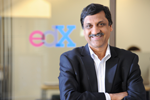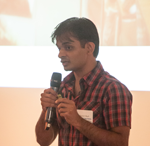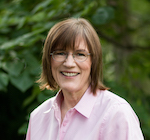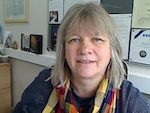Keynotes + Lightning Speakers
Keynotes
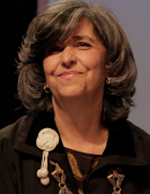
Carla Padrel de Oliveira
(Rector, Universidade Aberta, Portugal)
Travelling with Mooc’s: explore boundaries and increase knowledge
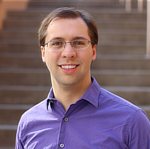
David Joyner
(Executive Director of Online Education & OMSCS, Georgia Tech's College of Computing, USA)
From MOOCs to Degrees and Back Again: The Georgia Tech OMSCS Program
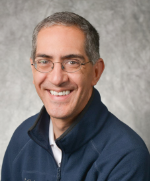
Dan Garcia
(Teaching Professor, UC Berkeley, USA)
Achieving CSforALL through the Beauty and Joy of Computing (BJC)
Lightning Speakers

Justin Reich
(Director, MIT Teaching System Labs, USA)
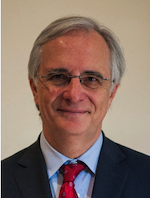
Carlos Delgado Kloos
(Vice President, Universidad Carlos III de Madrid, Spain)
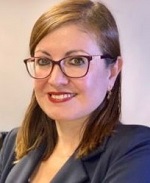
Carina S. González
(Professor, Universidad de La Laguna/Open University of Catalonia, Spain)
Gender and human-centered approaches for designing technology

Kristin Palmer
(Director, Online Learning Programs, University of Virginia, USA)
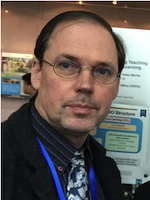
Jeffrey S. Cross
(Professor, Online Education Development Office, Tokyo Tech, Japan)
Utilizing MOOCs as a platform for teaching, learning, research and training
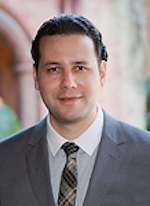
Rocael Hernández Rizzardini
(Director Galileo Educational System, Universidad Galileo, Guatemala)
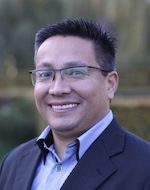
Johann Marquez-Barja
(Professor, University of Antwerp - imec, Belgium)
Can we escalate hands-on remote experimentation/labs to MOOCs?
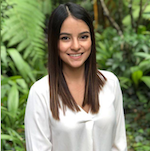
Andrea Lara
(Department Director, Universidad Galileo, Guatemala)

Hamid Doost Mohammadian
(Professor, University of Applied Sciences (FHM), Germany)
The 5th Wave/Tomorrow Age Theory as Solutions for the 4th Industrial Revolution
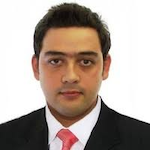
Luis Felipe Zapata-Rivera
(Assistant Professor, Embry-Riddle Aeronautical University, USA)
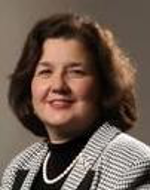
Maria M. Larrondo-Petri
(Professor, Florida Atlantic University, USA)

Victor Wong
(CEO, Bridge AI, Hong Kong S.A.R., China)
MOOC for SEN: Current Status and Major Challenges faced by the Education Industry
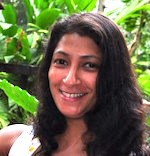
Aruquia Peixoto
(Assiant Professor, CEFET/R, Brazil)
Online education promoting collaboration of diverse teams: From gender to geographical
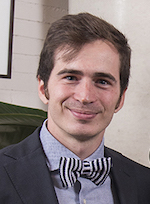
José A. Ruipérez-Valiente
(Senior Researcher, University of Murcia, Spain & Research Affiliate, MIT, USA)
Macro MOOC Learning Analytics: Trends Across Global and Regional Providers

Blanca Amigot Gonzalez
(VP of Partnerships, IBL Education, USA)
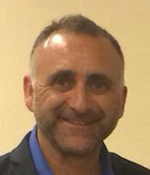
Edmundo Tovar
(Associate Professor, IEEE Education Society President Elect & UPM, Spain)

Manuel Castro
(Professor, IEEE Division VI Director & UNED, Spain)
Carla Padrel de Oliveira
Rector, Universidade Aberta, Portugal
Travelling with Mooc’s: explore boundaries and increase knowledge
Established in 1988, Universidade Aberta (UAb) is the public distance education university in Portugal. In this context, UAb offers higher education anywhere in the world - undergraduate, and postgraduate (all integrated into the Bologna Process) and Lifelong Learning study programs. Since 2008 that all programs are taught in elearning mode, the year that UAb became a European institution of reference in the area of advanced elearning and online learning through the recognition of its exclusive Virtual Pedagogical Model by an international panel of experts.
The new means of communication through the web allows us to set up new virtual learning contexts, and requires the adoption of pedagogical strategies that engage students as active participants, leading them to develop metacognitive skills (learning to learn) and take a constructive attitude regarding their capacity of self-realization towards lifelong learning, becoming more and more autonomous and being able to interact responsibly in group.
The Speaker
Carla Padrel de Oliveira is, since 2019, Rector of the Universidade Aberta of Portugal. She studied in Lisbon (Faculty of Sciences, University of Lisbon) and holds a PhD in in Chemical Engineering from the Imperial College of Science Technology and Medicine at the University of London Previously, she was Vice-Rector for the areas of Quality and International Cooperation. Being at Universidade Aberta since 1995, she has been involved in teaching several curricular units in the area of Chemistry and coordinates study programs, namely the PhD in Social Sustainability and Development. Has a wide range of scientific publications in the field of experimental thermodynamics and simultaneously developed an important professional activity in the area of distance education |eLearning, namely in the field of distance education strategies directed to the community of Portuguese-speaking countries. Between 2000 and 2008 led the international project that created the lusophone network within the global interactive network GDLN of the World Bank. The projects developed aimed to promote human development, through the mobilization of resources from Universidade Aberta and other public and private entities towards the creation, support and execution of distance education and training projects in Portuguese Language.
David Joyner
Executive Director of Online Education & OMSCS in Georgia Tech's College of Computing, USA
From MOOCs to Degrees and Back Again: The Georgia Tech OMSCS Program
David Joyner has worked on Georgia Tech's OMSCS program since near the beginning, first as an employee of Udacity and later as the program's director at Georgia Tech. In this talk, David tells the story of the creation of the OMSCS program as a MOOC-based degree program. He provides the story of how the program was initially constructed, and why and how it quickly drifted away from its MOOC roots. Then, he brings the story back to MOOCs, showing how more recently the program has been used for more open efforts and how the lessons learned in the program can apply to MOOCs and online degree programs alike.
The Speaker
David Joyner is Executive Director of Online Education & OMSCS in Georgia Tech's College of Computing. His research focuses on online education and learning at scale, especially as they intersect with for-credit offerings at the graduate and undergraduate levels. His emphasis is on designing learning experiences that leverage the opportunities of online learning to compensate for the loss of synchronous collocated class time. This includes leveraging artificial intelligence for student support and assignment evaluation, facilitating student communities in large online classes, and investigating strategies for maintainable and interactive presentation of online instructional material. As part of his work, Joyner teaches online versions of CS6460: Educational Technology, CS6750: Human-Computer Interaction, CS7637: Knowledge-Based AI, and CS1301: Introduction to Computing. Joyner has received several awards for his work in teaching online, including the 2019 USG Regents' Teaching Excellence Award for Online Teaching, 2018 Georgia Tech Center for Teaching & Learning Curriculum Innovation Award, and the 2016 Georgia Tech College of Computing Lockheed Excellence in Teaching Award.
Dan Garcia
Teaching Professor at UC Berkeley, USA
Achieving CSforALL through the Beauty and Joy of Computing (BJC)
At a time when computing is so much a part of all of our lives, has incredible job opportunities, and is so empowering, most students graduate high school without having had any introduction to computer science. A decade ago in the United States, the CSforALL movement was launched to broaden participation in computing to those traditionally underrepresented. This talk will reflect on the current state of that initiative, and introduce the "Beauty and Joy of Computing (BJC)" course, which has received worldwide attention and currently has 65% female enrolment at UC Berkeley, among the highest in the nation. We'll also announce partnerships that will bring the course (software, curriculum, professional development) to the Spanish-speaking world!
The Speaker
Dan Garcia (UC Berkeley MS 1995, PhD 2000) is a Teaching Professor in the Electrical Engineering and Computer Science department at UC Berkeley. Selected as an ACM Distinguished Educator in 2012 and ACM Distinguished Speaker in 2019, he has won all four of the department's computer science teaching awards, and holds the record for the highest teaching effectiveness ratings in the history of several of the department's courses.
He is a national leader in the "CSforALL" movement, bringing engaging computer science to students normally underrepresented in the field. Locally, he serves as the CSforCA higher education co-chair. Thanks to four National Science Foundation grants, the "Beauty and Joy of Computing (BJC)" non-majors course he co-developed has been shared with over 500 high school teachers. He is delighted to regularly have more than 50% female enrollment in BJC, with a high mark of 65% in the Spring of 2018, shattering the record at UC Berkeley for an intro computing course, and is among the highest in the nation! He is humbled by the national exposure he and the course have received in the New York Times, PBS NewsHour, NPR's All Things Considered, USA Today, and the front pages of the San Jose Mercury News and San Francisco Chronicle.
He has won the NCWIT Undergraduate Research Mentoring award, the UC Berkeley Unsung Hero award, the LPFI Lux award, the SAP Visionary Member award, and was chosen as a Google CS4HS Ambassador for his work to support teachers and diversify computing. He has served on the ACM Education Board, the College Board Computer Science Principles Development Committee, was the ACM SIGCSE Program co-chair in 2017, and the ACM SIGCSE Symposium co-chair in 2018. He was recently elected ACM SIGCSE Vice-Chair for the 2019-2022 term. In 2019 it was announced he was the most frequent SIGCSE author in their 50-year history, with *61* submissions of all kinds: papers, panels, workshops, posters, etc.; second place had 42.
His computer science education research interests are in personalized & adaptive virtual tutors, online education tools, and assessment of computational thinking. He has had 13 MS students who have recently been worked on projects related to online learning, specifically building tools and analyzing data for his BJC edX and in-person class. His GamesCrafters undergraduate computational game theory research and development group builds tools to solve and analyze abstract strategy games.
On the fun side, he can play 20+ songs on the harmonica (but they all end up sounding like "Piano Man"), juggle 5 balls, score in the low 90s on the links, spin things on his finger, and recite all the words to many old-school raps, stand-up comedy bits and Monty Python sketches. He also has a collection of several hundred game and puzzle books, and terribly enjoys sharing good brain teasers or playing any one of his many exotic board games with students who drop by during open office hours. Don't get him started telling jokes...
His wife (Tao Ye, Ph.D.) is also a UC Berkeley Computer Science alumnus, and is Director of Science at Pandora Media. They have two children.
Anant Agarwal
CEO, edX, USA
The new normal for education
edX CEO and MIT Professor, Anant Agarwal, reflects on online education in the new normal of COVID-19. He'll discuss what has changed already and what will change in the coming months (and even years) and share insights around how this both impacts and expedites his vision for the future of blended education.
The Speaker
Anant Agarwal is the Founder and CEO of edX and Professor of Electrical Engineering and Computer Science at MIT. Prof. Anant won the Maurice Wilkes prize for computer architecture, and MIT's Smullin and Jamieson prizes for teaching. He is also the 2016 recipient of the Harold W. McGraw, Jr. Prize for Higher Education, which recognized his work in advancing the MOOC movement. As a CEO of a global nonprofit, Anant is helping to transform traditional education, removing the barriers of cost, location and access. edX is reimagining the possibilities of education, providing the highest-quality, stackable learning experiences including the groundbreaking MicroMasters® programs. Additionally, he is a recipient of the Padma Shri award from the President of India and was named the Yidan Prize for Education Development Laureate in 2018.
Dhawal Shah
CEO, Class Central, USA
Second Year of the MOOC
On March 15th, Class Central noticed a big rise in visitors worldwide. Since then, 15 million learners (and maybe even a few celebrities) visited Class Central to look for courses, sending 8.5 million clicks to the MOOC providers themselves.
The ongoing pandemic has increased interest in online education — MOOC providers, in particular, have all seen drastic growth, which reminded me of the Year of the MOOC. I will go over some of the stats and trends regarding MOOCs that emerged during this pandemic.
The Speaker
Dhawal discovered a passion for education during his time as a masters student in Computer Science at Georgia Tech. When free online courses from top universities started popping up, Dhawal built a one-page site to keep track of these courses. That site, Class Central, is now the leading destination for finding MOOCs as well as understanding what is happening in the world of MOOCs. Since 2011, more than 40 million learners have used Class Central to decide which online course to take.
Dhawal himself has completed over a dozen MOOCs and has written over 200 articles on MOOCs, read by millions of people every year. Dhawal is a columnist for EdSurge and has written for publications including Techcrunch, VentureBeat, Quartz, and Observer.
Dhawal’s favorite courses of all time are Barbara Oakley's Learning How To Learn and Stanford's Algorithms: Design and Analysis.
Barbara Oakley
Professor, Oakland University, USA
The Keys to Making an Engaging Online Course
The point has been made that MOOCs cannot transform delivery and instructional systems in education. But a challenge is that many MOOCs are of poor quality. Why? MOOC-making universities can sometimes become almost mechanistic in their MOOC-making, more concerned about pushing product out the door than creating high value for students. And constructivist educational approaches are often used that can be ill-suited for teaching advanced, college-level materials for professionals.
This talk provides insights from evolutionary educational psychology and multimedia theory that point toward best practices in making engaging, high quality MOOCs. The adaptation of these general principals and approaches could do much to transform and improve online delivery and instructional systems in education.
The Speaker
Barbara Oakley is a Professor of Engineering at Oakland University in Rochester, Michigan. Her work focuses on the complex relationship between neuroscience and social behavior. She created and teaches Coursera – UC San Diego’s “Learning How to Learn,” one of the world’s most popular massive open online course with over three million registered students, along with other popular “Top MOOCs of All Time.” Barb is a New York Times best-selling author who has published in outlets as varied as the Proceedings of the National Academy of Sciences, the Wall Street Journal, and The New York Times—her book A Mind for Numbers has sold over a million copies worldwide.
Dr. Oakley has adventured widely through her lifetime. She rose from the ranks of Private to Captain in the U.S. Army, during which time she was recognized as a Distinguished Military Scholar. She also worked as a communications expert at the South Pole Station in Antarctica, and has served as a Russian translator on board Soviet trawlers on the Bering Sea. Dr. Oakley is an elected Fellow of the American Institute for Medical and Biological Engineering and of the Institute of Electrical and Electronics Engineers and the American Institute for Medical and Biological Engineering.
Justin Reich
Director, MIT Teaching System Labs, USA
The Three Big Bets of MOOCs and What Comes After
When MOOCs emerged in the early 2010s, advocates offered three big bets for their future: MOOCs would transform delivery and instructional systems in higher education, they would dramatically expand access to post-secondary learning--especially in places with limited access to colleges and universities, and they would usher in a new science of learning based on vast new sources of data. Together, these advances promised that MOOCs could make progress on all three sides of higher education's iron triangle: they could reduce costs by automating faculty labor, increase quality by partnering with elite institutions, and increase access by inviting participation from new learners around the world. But nearly a decade later these three bets have not paid out. MOOCs have not transformed higher educational systems, they primarily serve the already-educated rather than creating new on-ramps into higher education, and research in MOOC platforms has not substantially advanced the science of learning. Rather than disrupting higher education and clearing the way to a new landscape, MOOCs have been domesticated by existing systems, using well-established learning technologies, adopting older business models, and growing and flourishing in particular niches without paving the way to broader change. The goals of MOOCs to expand access and to advance online instructional design were laudatory, and as we look to the second decade of open online courses, we should revisit these big bets to imagine how some of the best aspirations of MOOCs could be recaptured.
The Speaker
Justin Reich is the Mitsui Career Development (Assistant) Professor in Comparative Media Studies at MIT and the director of the MIT Teaching Systems Lab. He is the author of Failure to Disrupt: Why Technology Alone Can't Transform Education from Harvard University Press and the host of the TeachLab Podcast. He is the editor of a recent Special Topic in AERA Open about Registered Reports, a new format of scholarly article where submissions receive peer review on their methodological merit before analyses are conducted. He has published five massive open online courses on edX for teachers and school leaders. His work has been published in Science, Proceedings of the National Academy of Science, Educational Researcher, The Atlantic, The Washington Post, and other venues.
Carlos Delgado Kloos
Vice President, Universidad Carlos III de Madrid, Spain
Adjusting the Parameters of Educational Models
The process of teaching well online is a learning process. From Open CourseWare and iTunesU to Youtube channels and Khan Academy to Connectivist MOOCs and xMOOCs to more recent models often based on mobile apps, such as Duolingo, Brilliant, Quantic, etc., we see that there are in fact a great variety of teaching models that are successively explored. What are the parameters that are important for an engaging educational experience and how have they been evolving? We analyze a number of different educational models and try to identify what elements they base on to achieve effective learning and what the present trends are.
The Speaker
Carlos Delgado Kloos received the Ph.D. degree in Computer Science from the Technische Universität München and in Telecommunications Engineering from the Universidad Politécnica de Madrid. He is Full Professor of Telematics Engineering at the Universidad Carlos III de Madrid, where he is the Director of the GAST research group, Director of the UNESCO Chair on “Scalable Digital Education for All”, and Vice President for Strategy and Digital Education. He is also the Coordinator of the eMadrid research network on Educational Technology in the Region of Madrid. He is Senior Member of IEEE. He has been the Manager of ICT research projects at the Spanish Ministry and has carried out research stays at several universities such as Harvard, MIT, Munich, and Passau. His main research interests are in Educational Technology. He has been involved in a large number of projects with European, bilateral, national, and regional funding. He has published around 500 articles in national and international conferences and journals and has further written a book and co-edited over a dozen. He has coordinated and participated in several MOOCs (on edX and MiríadaX).
Carina S. González
Professor, Universidad de La Laguna/Open University of Catalonia, Spain
Gender and human-centered approaches for designing technology
Currently, there is extensive research on the under-representation of women in computer engineering in relation to technology creation processes. In the field of Human-Computer Interaction, there is an area called GENDER-HCI that studies the differences and preferences in the use of technology and design recommendations. But there is a lack of guidelines and methods applicable to current technology. Therefore, this talk aims to a) analyze gender differences and preferences in technology, b) analyze different methodological approaches that allow for the inclusion of the gender perspective in technology, and c) provide a set of recommendations for the design and development of gender-focused software. Specifically, a guide of recommendations to face new ethical challenges in the creation of technology with a gender perspective applied to engineering education will be presented.
The Speaker
Carina González is a Full Professor of Computer Architecture Technology at the Department of Computer Engineering and Systems of the University of La Laguna (Spain). Carina is a Ph.D. in Computer Science (2001) by the University of La Laguna and a Ph.D. in Social Science and Education (2020) by the University of Huelva (Spain). Bachelor in Computer Science (1995) by the National University of Northeast (Argentina), certified as Computer Engineering by the Spanish Ministry of Education (1999). She is also certified in “Early Childhood Technology” by the Tufts University (USA). She is the head of the research group Interaction, ICT, and Education (ITED). Carina is Chair of the Digital Culture of the University of La Laguna. She has been Director of the Innovation and Educational Technology (2011; 2015-2019). For more than 20 years, her research has focused on the field of Informatics applied to Education and Human-Computer Interaction (Intelligent Tutorial Systems, Adaptive and Customizable Interfaces, Educational Video Games, Gamification in Education, e-learning, digital culture), participating in different research projects and publishing widely on these topics. She was co-chair of the conference IEEE EDUCON 2018 (Engineering Education Conference)organized by IEEE education Society among other international conferences. She is an Associate Editor of the IEEE Transactions on Education and edited several special issues of IEEE-RITA (Revista Iberoamericana de Tecnologías del Aprendizaje) of Spanish Chapter of the IEEE Education Society. Also, she is Senior member of IEEE.
Kristin Palmer
Director, Online Learning Programs, University of Virginia, USA
The Tipping Point: Reaching Thousands of Learners in Africa through Coursera, WhatsApp, and Regional Partners
This presentation will be an overview of the African Scholarship program created by the University of Virginia (UVA). This program works in partnership with Distance Education of Africa (DEAfrica) and has provided tens of thousands of scholarships for students in all 54 countries in Africa. Through this program, massive open online courses (MOOCs) created by UVA faculty are distributed for free to learners in Africa. Learners are supported by regional contacts who encourage course progress through the social media platform WhatsApp. Regional contacts also host community celebrations. These celebrations provide an opportunity for students to tell their story and receive community support for their accomplishments. This program started with just under 100 participants in 2015 and now routinely has thousands in each cohort. There are approximately 10 courses offered each year. This presentation will walk through what we’ve tried in building a successful learning community, challenges we still struggle to overcome, and tips for creating successful online programs at scale.
The Speaker
Dr. Kristin Palmer is the Director of Online Learning Programs at the University of Virginia (UVA). In this role, she is responsible for massive open online courses (MOOCs), open educational resources (OER), faculty professional development for online learning, student support for online learning, facilitating pan-university e-learning needs assessment and fulfillment, and conducting research.
Jeffrey S. Cross
Professor, Online Education Development Office, Tokyo Tech, Japan
Utilizing MOOCs as a platform for teaching, learning, research and training
Tokyo Tech’s online education development office began developing online courses for release on edX in 2014 by working with Japanese and international student teaching assistants (TAs). In Japan, university graduate teaching assistants are not as common as at research universities in the USA. Training students to develop online courses provides students with new knowledge related to teaching, learning and project management. In addition, training students to develop online courses in Japan in a Japanese environment also provide students with a work experience with a Japanese cultural aspect. Training has been accomplished using blended-learning online courses and by actually developing online courses via on-the-job training. TAs are typically involved in course authoring, discussion board moderating, video shooting/editing, transcript translation/editing, and online course marketing. Teaching assistants actively assist instructors in creating online courses, developing learning analytics tools and conduct research on the online course content. Training TAs to create online courses is a practical way to support faculty who are teaching online, develop new online courses for the general public (outreach) as well as to train doctoral students who will become future faculty. Approximately 140 TAs have been trained and now are pursuing their careers. In this presentation, I will talk about how MOOC development at Tokyo Tech has been used for research, online technology development, teaching and training.
The Speaker
Jeffrey S. Cross is a Professor at Tokyo Tech, founder and director of the online education development office, which is part of the Center of Innovative Teaching and Learning. The office manages the development of online courses with approximately 30 student teaching assistants for release on edX. In addition, Jeffrey leads groups of teaching assistants that 1) develop online courses, 2) conduct research on learning analytics of online courses 3) develop open edX online tools to streamline online course development and improve their quality. Furthermore, he is a faculty member in the department of Transdisciplinary Science and Engineering in the School of Environment and Science, where he manages a lab of 15 students doing research on biofuels, Japanese energy policy and AI in education. Jeffrey previously worked at Fujitsu Labs and Fujitsu Ltd. for 14 years developing ferroelectric memory materials and reliability technology in Atsugi, Japan. Jeffrey received his Ph.D. in Chemical Engineering from Iowa State University, Ames, Iowa, in 1992 and has worked in Japan for over 25 years. Jeffrey is fluent in Japanese and is recently learning Khmer.
Rocael Hernández Rizzardini
Director Galileo Educational System, Universidad Galileo, Guatemala
The 4th Industrial Revolution: Challenges and Opportunities
Summary available soon.
The Speaker
Rocael Hernández Rizzardini received the Ph.D. degree in Computer Science from the Graz University of Technology, Austria. Currently, he is the Director of the Von Neumann Institute and Director of the GES Department at Galileo University, Guatemala.
Rocael is an academic and scientific researcher in computer science, interoperability of systems, web technologies and virtual education. He has worked as a consultant and director of international e-Learning and Web Technologies projects, with extensive experience in projects in various countries in Latin America, the United States and Europe. Professor of the Master in Management and Production of e-Learning at Galileo University.
He is leading the Galileo University project at edX.org, titled GalileoX. Rocael has led the production of more than 40 successful courses at edX with more than 500,000 students enrolled in the different cohorts. He is an active participant in the MOOC movement with several publications and conferences organization. With his valuable networking, Rocael is helping to re-configuring the higher education environment with innovative modular solutions using the microcredits model as edX MicroMasters or edX Professional Certificates. Rocael is also partner a Viaro Networks, a software development company serving customers worldwide, leading engineering teams to develop the next wave of apps for several leading software products.
Johann Marquez-Barja
Professor, University of Antwerp - imec, Belgium
Can we escalate hands-on remote experimentation/labs to MOOCs?
Engineering education, in particular networking and communications related engineering, requires students to be trained under an experimentation-based approach in order to empower student with technical hands-on skills. Traditionally, such set of skills are trained and enhanced in laboratory or testbed environments. Nowadays, and in particular due to the COVID-19 situation, the different education systems have been pressured to move towards e-learning and to embrace the use of several distance learning methods. Remote labs and remote experimentation are a key component for our current computer and networking engineering education, such experimentation is done with the support of testbed facilities such as networking labs, wireless testbeds, mobility related testbeds (smartcities and smart highways). However, such facilities cannot cope with the concurrent high simultaneous educational demand, in particular when referring to massive online courses.
This lightning talk aims to provide a good-practice guideline on how to enable remote experimentation on top of high-performance testbed/labs for massive online courses, aiming to empower networking engineering students with the skills that our current society demands.
The Speaker
Prof. Marquez-Barja is a Professor at University of Antwerp, as well as a Professor in IMEC, Belgium. He is leading the Wireless Cluster at IDLab/imec Antwerp, and he is the Program Director of the IoT Academy at UAntwerp. He was and is involved in several European research projects such as CREW, FORGE, WiSHFUL, Fed4FIRE/FAVORITE, Fed4FIRE+, eWINE, CONCORDA, 5G-CARMEN, FLEXNET, FUTEBOL (Technical Coordinator), 5G-Mobix, PROTEGO, InterConnect, and 5G-Blueprint projects (Technical Coordinator). He is a member of ACM, and a Senior member of the IEEE Communications Society and IEEE Education Society where he participates in the board of the Standards Committee. His main research interests are: 5G advanced architectures including edge computing; flexible and programmable future end-to-end networks; IoT communications and applications. He is also interested in vehicular communications, mobility, and smart cities deployments. Prof. Marquez-Barja is co-leading the Citylab Smart City testbed, part of the City of Things programme, and the SmartHighway testbed, both located in Antwerp, Belgium. Furthermore, he is also interested and active on education development, being actively involved in different research actions to enhance engineering education, in particular remote experimentation in e-learning systems. Prof. Marquez-Barja has given several keynotes and invited talks in different major events, as well as received 27 awards in his career so far, and co-authored more than 100 articles. He is also serving as Editor and Guest editor for different International Journals, as well as participating in several Technical Programme and Organizing Committees for several worldwide conferences/congresses.
Rebecca Strachan
Professor, Northumbria University, UK
Creating Inclusive Learning Environments
Our world is changing rapidly. We need to adapt too. Studies have shown that organisations with more diversity are often more innovative and creative and are able to adapt more effectively to changing situations. However, in technology and engineering we still have a diversity issue in many parts of the world. To change this we must encourage a greater diversity of people into the sector and provide an inclusive and welcoming environment for them. This also includes our educational provision. In this lightning talk Professor Strachan will draw on her own experience and that of others to explore how we can provide inclusive learning environments. This includes consideration of language, images, and approaches to teaching, including in an online environment.
The Speaker
Rebecca Strachan is the Deputy Faculty Pro Vice Chancellor: Engineering and Environment at Northumbria University and also Professor of Digital Technology and Education. Principal Fellow of the UK Higher Education Academy, she has held strategic academic leadership and management experience across three universities. With a keen interest in gender, diversity and STEM, she supports equality of opportunities for all and is a panel member of the national Athena Swan awards. She is also the Faculty executive lead for NUSTEM, a major widening participation programme to engage more young people, particularly females in STEM (www.nustem.uk); and the university lead for the BRIDGE project, aimed at encouraging greater diversity in the construction sector (http://www.bridgeresearch.net). She is an internationally recognised authority on digital technology and education and is an elected member of the IEEE Education Society Board of Governors, and part of the team that developed their MOOC on Open Education. She leads the Digital Learning Lab (www.nudll.com) at Northumbria University where her research centers on four interrelated areas: Digital Technology and Education; Active Learning and Student Engagement; STEM Equality, Diversity and Inclusion; and End User Experiences of Digital Technologies.
For further information, see https://www.northumbria.ac.uk/about-us/our-staff/s/rebecca-strachan/
Andrea Lara
Department Director, Universidad Galileo, Guatemala
How Can We Encourage More Girls to Become Engineers?
The talk is about how we can encourage more girls to pursue a career in engineering by showing how science and technology can be used to improve people’s lives. Currently, for most of the girls, following a career in engineering is not their first option because is seen as a difficult career that is mostly pursued by men. Therefore, the aim of this talk is to show how we can approach this problem by showing real-life solutions designed and developed by engineers, focusing on the application of science and technology as a tool for problem solving and showing them how including the female perspective can lead us to make innovative solutions.
In this talk, I will present my experience on encouraging girls into STEM careers. I will share how showing them the application of technology to areas like health and demonstrating how this can help to improve the patients’ lives have helped me to change their concept of engineering. Moreover, I will also share my experience as a woman in engineering, and how being part of groups of women in science has helped me to grow in the field.
The Speaker
MSc. Andrea Lara has a Bachelor's degree in electronic engineering and a Master's degree in Biomedical Engineering from the University of Luebeck in Germany. Currently, she is a Ph.D. student in biomedical engineering at the Institute of Health Care Engineering with European Testing Center of Medical Devices, Graz University of Technology, Austria. Her research topic is the application of Artificial Intelligence algorithms to cardiac imaging for the diagnosis of cardiovascular diseases.
MSc. Lara is the head of the Biomedical Engineering department at Galileo University in Guatemala City, Guatemala. She is the director of the master's program in biomedical engineering and lecturer of several courses including digital signal processing, medical imaging, and regulatory affairs. Additionally, she is working on research projects related to medical imaging and Artificial Intelligence.
MSc. Lara is the current chair of Affinity Group IEEE Women in Engineering in Guatemala and has participated in several conferences, seminars, and debates on women’s empowerment and women in science.
Hamid Doost Mohammadian
Professor, University of Applied Sciences (FHM), Germany
The 5th Wave/Tomorrow Age Theory as Solutions for the 4th Industrial Revolution
The 5th wave/tomorrow or final age theory (Introduced and invented by Prof. Dr. Hamid Doost Mohammadian, 2017–19), which regards the future of the 4th Industrial revolution and Society 5.0 and edge of tomorrow. This theory posits the readiness of the edge of tomorrow, today’s challenges and tomorrow’s crises and shocks! In order to face them and provide solutions. In addition, this theory creates societies and business founded on high technologies, D3 (three 21st revolutions: digitalization, decarbonization and decentralization), appropriate business strategies concerned on sustainability which can create new concept and situation of business which is capable of tackled with future concerns entitled ''Tomorrow's Society and Business'' which is a super intelligent society with smart business environment by using AI. According to this theory, Internet of Things (IoT) and Internet of Business (IoB) play vital role in the future of business and the 4th industrial revolution.
Technology development has led to new opportunities for business improvement. IoT is a new technique used in Industry 4.0 (I4.0) that enable businesses to better manage resources and provide them with the flexibility to respond to business conditions. The digital transformation driven by 4.0 technologies is having a disruptive impact on many business sectors. These innovations allow us to respond to both the growing business demand and the maintenance cost of businesses and a reduction in downtime. The application of IoT technologies to vast types of devices has led to electrical networks being monitored and controllable in a capillary way. Big data techniques and predictive models allow smart business management, from a national scale up to global, facilitating the spread of different business systems. New intermediaries and new business models appear in the market. The world economy has changed from a business economy to a data and business economy, leading to the concept of the “Internet of Business”.
The Speaker
Hamid Doost Mohammadian, is a German full professor for international technology management with major blue-green sustainability, also Director for International Management at University of Applied Sciences (FHM) Germany. Prof. Dr. Hamid Doost Mohammadian obtained his doctorate in business strategy and an honorary doctorate in international business and sustainable development management, a Master of Industrial Engineering, and a Bachelor of Computer hardware engineering. He obtained two honorary professorships in global SME management and in international technology management and entrepreneurship. He is an expert in Blue-Green Sustainability and combining IoT technology with Management. Furthermore, since April 2017, he is external lecturer/expert at the TU-Campus EUREF gGmbH at the Technical University of Berlin (TU Belin) and guest professor at ICD Academy for Cultural Diplomacy in Berlin, and external/visiting professor and PhD supervisor/examiner of FHM joint doctoral programs with two British Universities, external/visiting professor at World Executive Education Institute (WEEI) in USA, Technical & Vocational University (TVU), International University of Chabahar (IUC) and Industrial Management Institute (IMI) in Iran.
In addition, he works as an academic leader of Erasmus+ project titled "Internet of Energy (IoE)-Education/Qualification" in Germany since 2017. Previously, he wrote several books as well as several publications in peer-reviewed journals and international conferences in combination of Management, Engineering, Digitalization and Sustainability. He has held so many speeches in international conferences and events. The results of his research and lecturing is some new theories, models and projects such as the invention of the “5th wave/tomorrow age-theory” which is concerning sustainability and future study, another theory of his is ”i-Sustainability Plus theory” which is combination of innovation, sustainability and digitalization and "Hybrid SMEs & 3D SMEs" models which are focusing on the CSR side of sustainable business and also yem>"7PS model" which is focusing on seven pillars of sustainability. Many of his publications and researches are in the field of sustainability, IT, digitization, hybrid knowledge, etc. He is member of the editorial and reviewer board at more than 10 international Journals. In addition, he is active at various international workshops and conferences where he has held his speeches.
Luis Felipe Zapata-Rivera
Assistant Professor, Embry-Riddle Aeronautical University, USA
Maria M. Larrondo-Petri
Professor, Florida Atlantic University, USA
Smart Adaptive Remote and Online Lab Infrastructure Initiative: A Model of International Cooperation between Academia, Government, Non-Profit Organizations, Professional Societies and Industry
The Ministers of Science and Technology of the 35 countries members of the Organization of American States created an hemispheric collaboration initiative, called Engineering for the Americas, which now forms part of one of their four working groups, Working Group 2: Human Resources Capacity Building. The working group is led by the Ministry of Science and Technology of Argentina and composed of individuals representing government, academic, non-profit organizations, professional societies and industry. One of the Engineering for the America’s initiatives is the development of a hemispheric infrastructure to support access to low-cost remote and online laboratories for Engineering courses. The not-for-profit Latin American and Caribbean Consortium of Engineering Institution (LACCEI) and Florida Atlantic University (FAU) lead the initiative and are collaborating with the Education Society of the Institute of Electrical and Electronics Engineers (IEEE) in developing the IEEE 1876 Standard for Networked Smart Learning Objects for Online Laboratories. Additionally, LACCEI and FAU participate as members of the IEEE Industry Connections Industry Consortium on Learning Engineering, (ICICLE), comprised of more than 50 organizations in industry, government and academia with a common goal of supporting the development of ‘learning engineering’ as a profession and an academic disciple. Progress has been made: the IEEE 1876 Standard was approved and the prototype infrastructure developed by LACCEI at FAU complies with the standard, remote and online labs have been developed to serve as proof of concept, and a mobile lab a set of 6 remote labs that support the Introduction to Logic Design course at FAU are being tested with both an online section and a live lecture section of the course this semester, and will be scaled for access by the universities member of the LACCEI Consortium by lab federation across the consortium members by next year.
The Speakers
Dr. Zapata-Rivera got his PhD in Computer Engineering from Florida Atlantic University, in the past worked as a researcher assistant in the educational computer research group in the EAFIT University in Medellin, Colombia. His work area is specifically the online laboratories and assessment systems, he conducted his undergraduate studies in systems engineering and completed his masters in Engineering at EAFIT University. He has developed systems using automatic assessment (computer based assessments) using algorithms for test generation and LMS systems. He is part of the IEEE 1876 Standard for Network Smart Objects for Online Labs and the IEEE P2834 Standard for Secure and Trusted LearningSystems. He directs the Online Labs and Learning Engineering Standing Committee of LACCEI (Latin American and Caribbean Consortium of Engineering Institutions).
Dr. Larrondo-Petrie has a Ph.D. in Computer Engineering and is a Professor and Associate Dean of International Affairs in the College of Engineering and Computer Science of Florida Atlantic University. She is the Executive Director of LACCEI (Latin American and Caribbean Consortium of Engineering Institutions) and served in the past as an officer of the International Division of ASEE (American Society of Engineering Institutions). She is Editor-in-Chief of the Latin American and Caribbean Journal of Engineering Education, forms part of the International Advisory Board to the Journal of Engineering Education published by ASEE, and is on the Editorial Board of the IEEE Education Society's Iberian-American publication, called RITA because of its acronym in Spanish. She is Chair of Engineering Education Initiatives in EftA (OAS Engineering for the Americas) and organizes the annual OAS Summit of Engineering for the Americas. She is part of the Education Committee of UPADI (in English: Pan American Federation of Engineering Associations) and of WFEO (World Federation of Engineering Organizations). She serves of the Board of ASIBEI (Iberian-American Engineering Education Association), and, in the past, served as First Vice President of IFEES (International Federation of Engineering Societies)
Victor Wong
CEO, Bridge AI, Hong Kong S.A.R., China
MOOC for SEN: Current Status and Major Challenges faced by the Education Industry
Every child, including those with learning challenges, can discover his true potential if he can be provided with the right environment and high quality of teaching. Applied Behavior Analysis (ABA) is an effective pedagogy in students with special education needs (SEN), especially those with autism special disorders (ASD). ABA break downs the target learning tasks into small and manageable steps for SEN students, so as to enhance their learning and mastering of meaningful new behaviours. In this talk, Victor will share his vision on conducting ABA using MOOC. He will highlight the current status and major challenges faced by the Education industry in doing so, and how emerging technologies such as artificial intelligence (AI) and the Internet of Things (IoT) might provide the solutions in overcoming the challenges through individualized education program and real-time virtual support.
The Speaker
Victor Wong has strong passion in education. He founded Bridge Academy in 2014, a school that provides Applied Behavior Analysis (ABA) services for children of aged 2 and above with learning difficulties. More than 300 special education needs (SEN) students had received ABA services involving 10,000 learning tasks at Bridge Academy since 2014. Victor has also founded Bridge AI, a company using Artificial Intelligence (AI), big data and video and audio communication systems to support e-learning of SEN children. He is now collaborating with Hong Kong Applied Science and Technology Research Institute (ASTRI) in a project funded by the Hong Kong Innovative and Technology Bureau (ITB) to develop a distance learning education system that tailors the individual needs of the SEN students.
Dennis Lee
R&D Director, ASTRI, Hong Kong S.A.R., China
AI + IoT + LO = MOOC for SEN
Students having special education needs (SEN) face a lot of challenges in life. There is no effective online learning solution for SEN students, especially when the training are conducted at home during Covid-19. In this talk, Dennis will introduce an AI & IoT based Applied Behavior Analytics (ABA) system for individualized online learning for SEN students and their parents or caregivers. We aim to help education practitioners to accelerate the assessment process and create a more effective individualised MOOC-like experience for students with special education needs.
The Speaker
Mr. Dennis Lee is an R&D Director at ASTRI, the largest applied research institute established by the HKSAR government. He is also the program director of the e-learning initiative. He has successfully launched various e-learning applications in over 100 schools. Before joining ASTRI, Mr. Lee has worked in several MNCs at Silicon Valley. Dennis is an MBA degree holder; he also owes a master's degree in computer engineering from Cornell University, USA.
Aruquia Peixoto
Assistant Professor, CEFET/R, Brazil
Online education promoting collaboration of diverse teams: From gender to geographical
Online education, and in particular the MOOC's, are an important tool to students learn during the formative years and to promote continuing education for professionals.
The current pandemic of COVID-19, and the reality of the work developed from home, highlighted the importance of learn and work with online resources.
Use of online educational tools can connect and promote the collaboration of diverse students and professionals with diverse backgrounds, this allows the connections of students and professionals from distinct regions.The exchange of experiences can makes possible to recognize distinct problems and propose solutions with groups formed by professional with diverse background and approach.
The Speaker
Assistant professor of CEFET/RJ, with a bachelor in Mathematics, master in Engineering of Computing and Systems and doctorate in Mechanical Engineering. Worked in the implementation of the State University of Roraima, Brazil. Advised undergraduate students in scientific projects in the State University of Rio de Janeiro (UERJ), and received four prizes, two from UERJ and other two at IMPA, in 2020 won the IEEE EDUCON Meritorious Service Award.
Member of the ACM SIGGRAPH International Resources Committee, since 2013, member of the SIGGRAPH Asia Symposium on Education Committee, in 2016 and 2017, and member of ACM SIGGRAPH Diversity and Inclusion Committee since 2018.
Chair of the special session IDEE (Inclusion and Diversity in Engineering Education) in IEEE EDUCON conference since 2018.
José A. Ruipérez-Valiente
Senior Researcher, University of Murcia, Spain & Research Affiliate, MIT, USA
Macro MOOC Learning Analytics: Trends Across Global and Regional Providers
Massive Open Online Courses (MOOCs) have opened new educational possibilities for learners around the world. Numerous providers have emerged, which usually have different targets (geographical, topics or language), but most of the research and spotlight has been concentrated on the global providers and studies with limited generalizability. In this work we apply a multi-platform approach generating a joint and comparable analysis with data from millions of learners and more than ten MOOC providers that have partnered to conduct this study. This allows us to generate learning analytics trends at a macro level across various MOOC providers towards understanding which MOOC trends are globally universal and which of them are context-dependent. The analysis reports preliminary results on the differences and similarities of trends based on the country of origin, level of education, gender and age of their learners across global and regional MOOC providers. This study exemplifies the potential of macro learning analytics in MOOCs to understand the ecosystem and inform the whole community, while calling for more large scale studies in learning analytics through partnerships among researchers and institutions.
The Speaker
José received a PhD on Learning Analytics from Universidad Carlos III of Madrid and completed his Postdoctorate at MIT. He currently holds the prestigious Spanish fellowship Juan de la Cierva at the University of Murcia and remains as a Research Affiliate at MIT. His work lies within the intersection of data and human-computer interaction, where he has worked mainly in online learning and educational games, but also across other contexts. He applies technology, analytical approaches and machine learning to understand human behavior and improve these contexts. He has experience over the entire data science process, from data capture, data tidying, feature engineering, exploratory analytics, machine learning and data-driven applications. He has received more than 20 academic/research awards and fellowships (like the BBVA Award as Outstanding Young CS Researcher), has published more than 60 scientific publications in high impact venues (like Science, Computers & Education or Computers in Human Behavior) and participated in over 12 funded projects, including contracts, regional, national, European and international ones (as principal investigator in two of them). He is very active within the professional community and has delivered over 10 invited talks/workshops, over 10 press releases and interviews, has been part of the scientific program committee of over 15 conferences/events and has reviewed for more than 20 journals. He is passionate about how learning occurs, solving data-based problems, teaching and sharing knowledge, yoga, nature and photography.
Blanca Amigot Gonzalez
VP of Partnerships, IBL Education, USA
Creating Online Learning Communities During the Pandemic
IBL’s approach consists of providing an entire workspace (or focused set of channels) per course, per platform or per segment of students. The goal is to be able to create focused communities that optimize for moderators’ and learners’ experiences at scale. Consequently, the IBL learning platform becomes both a software product and a social network. The software product determined who would join the network, but the network is what keeps users there. It’s like a multiplayer video game, or Harvard: Sure, the quests and campus are useful, but people keep showing up because of the friends they’ve made or the connections they intend to make. The users are bound to the courses because of the communities created within them. This network effect inevitably makes for learning platforms without this capability inferior engaging-wise. We will show the example of JupyterCon – a vibrant community of Jupyter notebook practitioners.
The Speaker
Blanca Amigot Gonzalez is VP of Partnership at IBL Education. She works in Open Source & AI-Driven Online Learning with Platform and Course Creation Services, building on an open-source community of 100M+ and fanatical commercial support, powering NVIDIA, IBM, Cisco, Docker, Global Knowledge, NYU, SUNY, GWU and many more.
Edmundo Tovar
Associate Professor, IEEE Education Society President Elect & UPM, Spain
Helping to develop new open practices in times of pandemics
The process of creating a culture of digital transformation of education requires, in the first place, the training of teachers in new ways of taking advantage of digital technologies that help educational innovation.
The recent need shown in recent months by almost all of the world's HE teaching staff to move towards remote instruction finds in Open Education a paradigm in which to develop their new teaching-learning models.
MOOCs are a basic element in these changes, but they have also played as a catalyst for different initiatives that promote the use of OER, although these are still not enough. The necessary training requires not only technical information but the necessary tools to carry it out. Some institutions have developed guidelines to develop open educational practices. These recommendations should guide different aspects, such as access to content or pedagogical models, or for collaboration between authors, among others.
This lightning talk will serve to introduce key components of Open Education and to present different OER-based websites that, as a consequence of the pandemic, have emerged to facilitate a rapid transition from classes to an online environment, around different dimensions of Open Education.
The Speaker
Edmundo Tovar, received the computer engineering degree and Ph.D. degree in informatics from the Madrid Technical University (Universidad Politécnica de Madrid, UPM), Madrid, Spain, in 1986 and 1994, respectively. He is currently with the UPM as a Professor of information technology in enterprise. He has served as an elected member of the Board of Directors of the OpenCourseWare Consortium (2009–2013), Executive Director of the OCW Office of the UPM (2008–2012), and Executive Director of the Open Education Office at UPM (2013-2016). Prof. Tovar is a Certified Software Development Professional (CSDP) (2005 -), Professional Software Engineering Master Certification (2015- ) of the IEEE Computer Society.
Member of the IEEE Education Society Board of Governors (2005– ) he is currently President elect (2019-2020) and President (2021-2022). He leads an Innovation Group in technologies applied to Open Education and he is Editor of the Information Technology / Information Systems Editorial Board of MERLOT . He is a professional member of IEEE ETA KAPPA NU.
Manuel Castro
Professor, IEEE Division VI Director & UNED, Spain
New Practical Competences for Industry 4.0 in MOOCs
MOOCs phenomenon introduces a new philosophy in educational models, regardless of users/students motivation when enrolling (lifelong learning, educational support, interest in new educational areas, etc.), MOOCs expand the ways of reaching knowledge. Flexibility is one of the key aspects of this new educational methodology. This flexibility has to be expanded/translated to all the aspects/features of the course. For educational institutions, traditional approaches must be left behind when designing courses and must provide a new approach to educational process. These educational challenges are highlighted in courses which require the provision of practical experiences in order to build successful cross-curricular capabilities and abilities. Nowadays, educational institutions trust in experimentation as one of the pillars in which learning is based. In fact, theoretical models used in books and in traditional classrooms.
This presentation deals with the needs and possibilities of the integration of practical competences in MOOCs as well as the evolution of the learning systems.
The Speaker
Manuel Castro, Electrical and Computer Engineering educator in the Spanish University for Distance Education (UNED), has an industrial engineering degree and a doctoral engineering degree from the UPM, Spain. He works as researcher, coordinator and director in different projects, ranging from systems applications of simulation techniques, solar system and advanced microprocessor system simulation to telematics and distance learning applications and systems, as well as computer-aided electrical engineering (CAEE), acting now as and senior Technical Director.
He belongs to the organizing committee of IEEE EDUCON (chair), IEEE LWMOOCS (chair), IEEE EDUNINE, IEEE FIE (International and Europe Chair, 2000-2006), ISES, TAEE and SAAEI conferences as well as program and planning committees’ member and reviewer and chairman of several ones. He was co-chair of the conference EDUCON 2010 (Engineering Education Conference), TAEE 2010 (Tecnologías Aplicadas a la Enseñanza de la Electrónica) and ICECE 2005 (International Conference on Engineering and Computer Education). Is co-chair of the conference FIE 2014 (Frontiers in Education Conference) organized by the IEEE and the ASEE, the conference REV 2016 (International Conference on remote engineering and Virtual Instrumentation) organized by IAoE and the conference IEEE LWMOOCS (Learning with MOOCS) organized by IEEE education Society. He is co-editor of IEEE-RITA (Revista Iberoamericana de Tecnologías del Aprendizaje) and of the Electronic Journal of Spanish Chapter of the IEEE Education Society.
He is Fellow member of IEEE; member of the IEEE Board of Directors (BoD) and IEEE Division VI Director (2019-2020); member of the Board of Governors (BoG) (2005–2021) of the IEEE Education Society and President emeritus of the IEEE Education Society. He has been recognized and awarded several times including: the 2017 Nikola Tesla Award for Outstanding Achievements in the Field of Engineering Pedagogy, of the IGIP (International Society for Engineering Education); the special award in their X anniversary of the Tourism Office of the Madrid Convention Bureau and nomination as Madrid Honor's Ambassador for the promotion of Madrid as destiny of large meetings and conferences; 2017; IEEE EDUNINE 2017 Meritorious Service Award; IEEE EDUCON 2011 Meritorious Service Award (jointly with Edmundo Tovar), etc.
